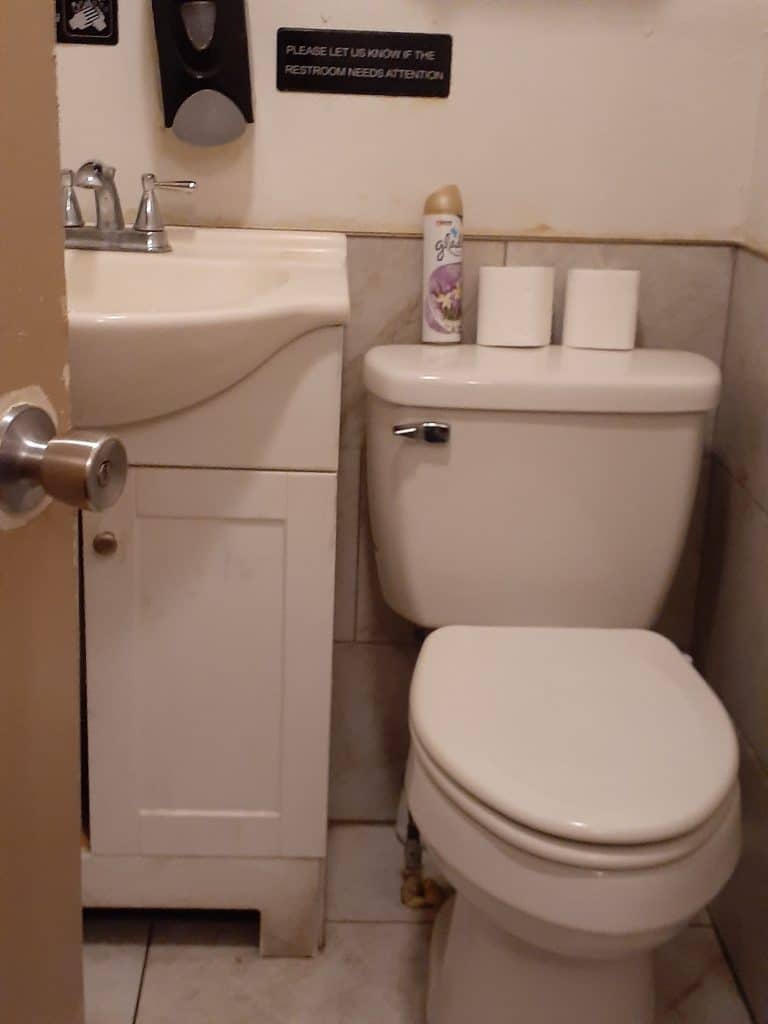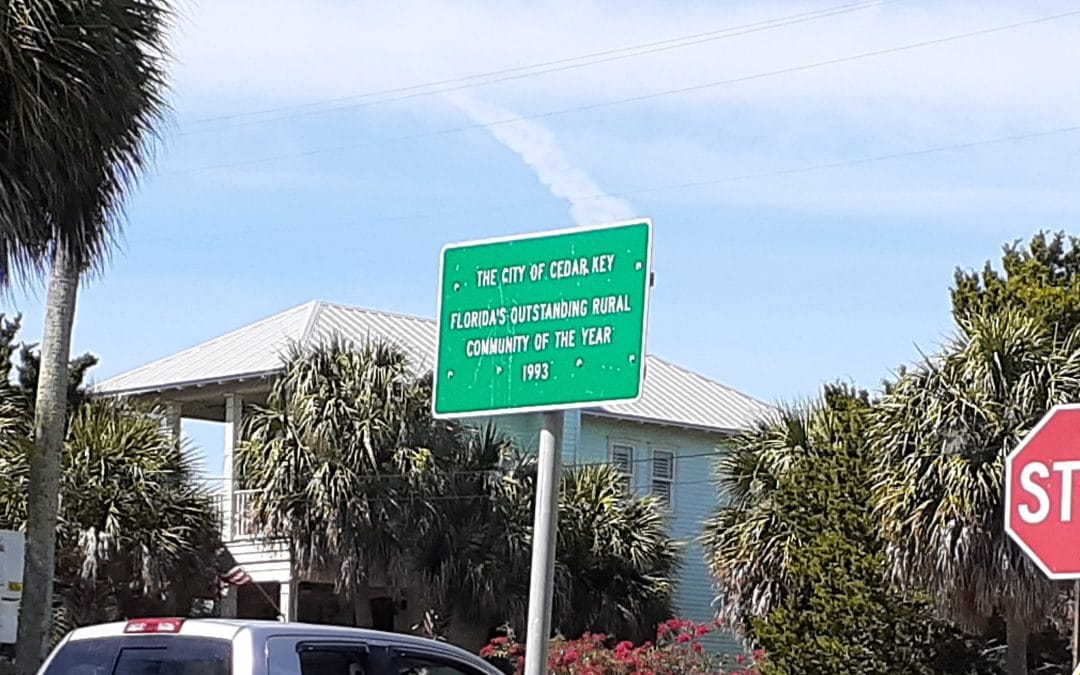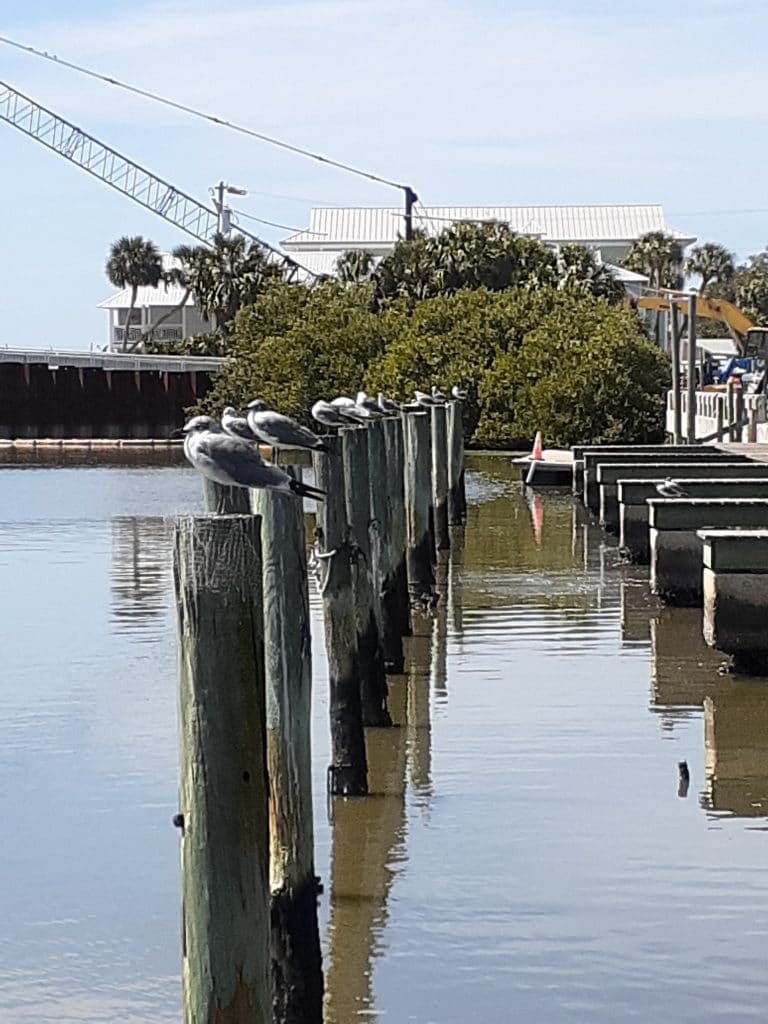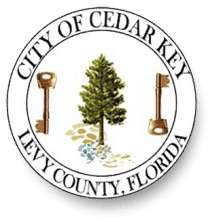We spoke In our most recent segment about companies who care and proactively identify ways to ensure that individuals with disabilities have appropriate access to their products and services. In the same way, there are cities that care and cities that seemingly don’t. Not that any of them develop a specific policy that says let’s not care, but in the end, their municipal concern or lack of concern shows itself pretty clearly.
Several weeks ago, my husband and I took a day trip to Cedar key FL. It is several hours from our home and I had been told that it’s delightful old Florida town. And that it is.
I have travelled a great deal, including many trips since becoming wheelchair dependent. And I have found acceptable disability access almost everywhere we have gone in the US, especially these days now that Americans with Disabilities Act (ADA) is over 30 years old. But it is possible that my expectations are shaped by the reality that larger metropolitan areas and larger national hotels and restaurants work to make sure they adhere to federal laws like the ADA.
Unfortunately, we have been finding that old rural towns and the businesses located there don’t seem to have that same commitment. When we first encountered a restaurant in Hudson, Pasco County, FL that only had a completely non-accessible bathroom we were surprised. “Isn’t that illegal?” we asked. And what we’ve since learned is “Well….not always.” And “It depends”
ADA is a federal law, but it is administered locally. So, if a city or a county doesn’t have a strong commitment to disability access, there can be ways that businesses can wiggle past some requirements of laws like these.
I recently heard an interview with a Judy Heumann, a very well-known disability activist and driving force for the enactment of ADA. She is quoted in 1977 saying “I’m getting tired of being thankful for accessible toilets”. Now, 44 years later no one should still be asking for and wondering if there is going to be an accessible bathroom at a restaurant.
And, yet here we are….
When we arrived in Cedar Key, we googled restaurants for lunch and found one that sounded great. The restaurant had no parking lot of its own but relied on the available on-street parking for it’s customers to use. The sidewalk configuration would have made getting into my wheelchair difficult plus the town didn’t sem to have any marked ADA spaces on-street. But, fortunately, it was a Sunday and the nearby post office was closed and did have an accessible parking space. So we parked and headed to the restaurant.
We noticed right away that there were almost no curb cuts that allowed safe passage on and off of the sidewalk. This is often the first indicator we have of how much a city or town values accessibility. But we proceeded up to next block and found that there was a crosswalk there with curb cuts that gave us safe passage to the restaurant.
We went in, were seated, looked through the menu and ordered our lunch. At that point we each wanted to use a restroom and wash our hands before eating.

My husband went first and came back reporting that since the men’s room was not accessible, the women’s room might not be either. He was right. I asked the staff if they had an alternative option and I was told “no”. Some restaurants in older buildings combine the space from the two small single gender bathrooms to create a larger accessible unisex bathroom. Or others have a larger employee bathroom in the back, that is accessible. No such luck here. The bathrooms here did not even have any grab bars on the walls.
Since I have some ability to stand & pivot, I braved using their facility anyway. All of this led to a “challenging” situation where I leaned on the sink for support, and it collapsed, sending me to the floor. My husband and their staff helped to get me up and return the bathroom sink to it’s previous condition.
Fortunately, I survived with no injury. But we had to ask “How does anyone find this situation acceptable?”
What I’ve now learned, twice, is that in more rural areas with older buildings, People use the “it would be too expensive to make the change” excuse to get around providing access. On the day of this incident, other restaurant patrons and restaurant staff said “Yes. Cedar key is just like that.” And we were told that many of the restaurants in that city do not have accessible bathrooms. I was shocked.
As a follow up, I contacted the city as well as the County to see how that could happen. Unfortunately, the results were not very satisfying. As in many states, the County offices do not have direct oversight over all of the communities within their boundaries. If a city government exists, they, and not the county, decide how to require and enforce ADA regulations within their jurisdiction. Cedar key is located in Levy County. The County does have an ADA coordinator, but that person does not have any jurisdiction over the city of Cedar key. Cedar key has an engineering Department that overseas ensuring some degree of Accessibility in their city , but older built buildings are not required to make ADA accessibility upgrades unless they are part of a larger renovation.
Sadly, when I spoke with the city engineer in Cedar key, she reported that to date during the time that she has been in that office, no one else has complained. Does that make it right? Does this mean that no one has needed an accessible bathroom where none was available?
To me an important lesson from this experience is that the more we speak up and ask everyone we know to speak up the likelihood that changes will be made increases. After our trip I logged into TripAdvisor, Facebook and Google Reviews and gave a bad review to the restaurant for not caring about customers. But I am one voice. I am certain that there are residents of Cedar key who have disabilities I am certain that in a state like Florida, many of the local travelers have some degree of disability. We need to work together to raise our voices.
It is now 31 years since the enactment of the Americans with Disabilities act. Certainly, by now every restaurant should realize the critical importance of having at least one accessible restroom on site. Please let me know your thoughts about this issue and ideas for trying to solve it.
The focus of today’s segment began as a discussion about cities that care and I’ve spent most of it talking about that one bathroom in that one restaurant. I’d like to wrap it up by expanding to a wider view.
When a company president sets priorities they filter down through the whole organization. Similarly, when city councils and mayors highlight their goals for a community they provide real targets for everyone to strive toward. Cedar Key is a beautiful, quaint waterfront community. But because they do not appear to have made any effort to recognize the needs of people with disabilities or less-abilities, they are denying the needs of their own citizens, are driving away tourist business.
I do not want to stop seeking out these more rural places but instead, I hope that by taking chances, sometimes encountering tougher situations but then talking about it and seeking solutions, we can make every place accessible and safe for all of us.




 This website is designed to give you practical tips, advice and links that will support your journey to seek out the solutions that work best for you.
This website is designed to give you practical tips, advice and links that will support your journey to seek out the solutions that work best for you.